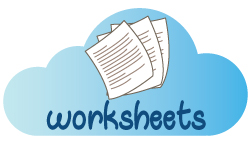What is a Pronoun? | Definitions, Rules, and Examples
- Grammar Lessons >
- Pronouns
A pronoun is a word used as a substitute for a noun or noun phrase. In other words, using a pronoun helps avoid repetition in a sentence.
Examples:
I, you, she, they, it
Example Sentences Using Pronouns:
This is Sam. Sam works for a local school. (pronoun not used)
This is Sam. He works for a local school. (The pronoun "he" is used instead of repeating "Sam".)
My sister's name is Mercy. Mercy is a great dancer. (pronoun not used)
My sister's name is Mercy. She is a great dancer. (The pronoun "she" is used instead of repeating "Mercy".)
Pronouns and Their Antecedents
Every pronoun is preceded by an antecedent. An antecedent is a noun or noun phrase that a pronoun refers back to. An antecedent always comes at the beginning of a sentence or writing and is later replaced by a pronoun.
Examples:
Maria worked hard to pass her biology test.
Maria is the antecedent here, and her is the pronoun.
Martha and Allen are visiting their grandma this Sunday.
The pronoun their refers back to "Martha and Allen". So, "Martha and Allen" is the antecedent in this sentence.
There are different types of pronouns in English, and each type serves a distinctly different purpose. The most common ones are subject pronouns, object pronouns, interrogative pronouns, possessive pronouns, demonstrative pronouns, indefinite pronouns, relative pronouns, and reflexive pronouns.
Subject Pronouns
A subject pronoun is a pronoun that takes the place of a subject in a sentence.
Examples:
I, you, she, they, it
Example Sentences Using Subject Pronouns:
I want to become a pilot.
She is a brilliant student.
They are attending a meeting.
Object Pronouns
An object pronoun is a pronoun that serves as an object in a sentence.
Examples:
me, her, him, us, them
Example Sentences Using Object Pronouns:
Mr. Alexander teaches us physics.
We respect him a lot.
Ava is an amazing athlete; everyone admires her.
Interrogative Pronouns
An interrogative pronoun is a pronoun used to ask a question.
Examples:
what, which, who, whose, and whom
Example Sentences Using Interrogative Pronouns:
What is your name?
Which is your book?
Who teaches you math?
Possessive Pronouns
A possessive pronoun is a pronoun that shows ownership or demonstrates possession.
Examples:
mine, yours, hers, theirs
Example Sentences Using Possessive Pronouns:
Dad bought me this book. It is mine.
Is this photo yours?
The house with a spacious balcony is ours.
Demonstrative Pronouns
A demonstrative pronoun is a pronoun used instead of a noun phrase, and it indicates the distance in time or space in relation to the speaker.
Examples:
this, that, these, and those
Example Sentences Using Demonstrative Pronouns:
This is a pen.
These are books.
That is a boy.
Indefinite Pronouns
An indefinite pronoun is a pronoun that refers to one or more unspecified things.
Examples:
everyone, someone, something, each, few
Example Sentences Using Indefinite Pronouns:
Few disagreed with Martin.
All are welcome to attend the party.
We are five friends, and everyone has a unique skill.
Relative Pronouns
A relative pronoun is a pronoun that connects a phrase or clause to a noun or pronoun. Relative pronouns introduce relative clauses.
Examples:
who, that, which, whose, and whom
Example Sentences Using Relative Pronouns:
This is the author whose books are sold like hot cakes.
The teacher who taught the first lesson was excellent.
The cake that we ate in the morning was yummy.
Reflexive Pronouns
A reflexive pronoun is a pronoun that ends with -self or -selves, and it refers back to the subject of a sentence.
Examples:
myself, yourself, herself, himself
Example Sentences Using Reflexive Pronouns:
Since Mom was away, we prepared dinner ourselves.
If you want to get insight into the subject, you should start solving the problems yourselves.
Mary did all the chores herself.
Click on the Circles to Spot the Six Pronouns
Students are likely to have doubts in choosing between "who" or "whom". The word "who" is a subject pronoun. Remember all these words: I, you, he, she, and he are subject pronouns, so you know better how to use "who". The word "whom" is an object pronoun. Think about other object pronouns like me, him, her, and us, so you have no problem understanding "whom" and when and how to use it.
Examples:
Whom do you think is the chief guest? (incorrect)
Who do you think is the chief guest? (correct)
An effective way to wisely choose between "who" and "whom" in a sentence is to substitute it with a personal pronoun. Let's apply this in the above example.
Whom do you think is the chief guest? Him/her is the chief guest. (incorrect)
Who do you think is the chief guest? He/She is the chief guest. (correct)
Since the sentence sounds correct using a subject pronoun, we know that we should use "who" and not "whom" in it.
In everyday English, we hear people using sentences like "Dad and me are great friends.", "David and me have decided to visit the park.", and so on. The problem in these sentences is the wrong use of pronouns. Since what we need in each of the above sentences is a subject pronoun, the correct versions will be "Dad and I are great friends." and "David and I have decided to visit the park."

Bolster your skills using our free printable Pronoun Worksheets.

